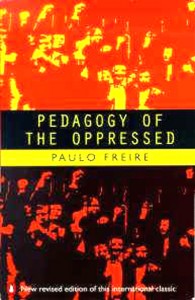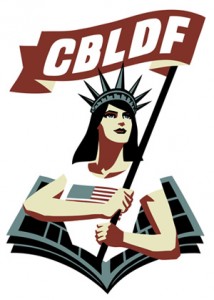2018 School Spending Survey Report
Tucson School District Approves Mexican American Studies Books
The Tucson, Arizona, school board on Tuesday voted 3-2 to reintroduce seven books by Latino and Native American writers to the curriculum as supplementary classroom materials, the Comic Book Legal Defense Fund (CBLDF) announced today. The books had been removed from the curriculum two years ago when the district dissolved its acclaimed Mexican American Studies program.
 The Tucson, Arizona, school board on Tuesday voted 3-2 to reintroduce seven books by Latino and Native American writers to its approved curriculum as supplementary classroom materials, the Comic Book Legal Defense Fund (CBLDF) announced today. The books had been removed from the curriculum two years ago when the district dissolved its acclaimed Mexican American Studies (MAS) program, CBLDF notes. Although the vote does not automatically return all of the books to the classroom, it means that teachers who wish to use them with their students can now do so. The books, which had remained in the school library despite not being allowed for classroom use, CBLDF notes, are: • Critical Race Theory by Richard Delgado • 500 Years of Chicano History in Pictures, edited by Elizabeth Martinez • Message to Aztlan by Rodolfo “Corky” Gonzales • Chicano! The History of the Mexican American Civil Rights Movement by Arturo Rosal • Occupied America: A History of Chicanos by Rodolfo Acuña • Pedagogy of the Oppressed by Paulo Freire • Rethinking Columbus: The Next 500 Years by Bill Bigelow
The Tucson, Arizona, school board on Tuesday voted 3-2 to reintroduce seven books by Latino and Native American writers to its approved curriculum as supplementary classroom materials, the Comic Book Legal Defense Fund (CBLDF) announced today. The books had been removed from the curriculum two years ago when the district dissolved its acclaimed Mexican American Studies (MAS) program, CBLDF notes. Although the vote does not automatically return all of the books to the classroom, it means that teachers who wish to use them with their students can now do so. The books, which had remained in the school library despite not being allowed for classroom use, CBLDF notes, are: • Critical Race Theory by Richard Delgado • 500 Years of Chicano History in Pictures, edited by Elizabeth Martinez • Message to Aztlan by Rodolfo “Corky” Gonzales • Chicano! The History of the Mexican American Civil Rights Movement by Arturo Rosal • Occupied America: A History of Chicanos by Rodolfo Acuña • Pedagogy of the Oppressed by Paulo Freire • Rethinking Columbus: The Next 500 Years by Bill Bigelow  CBLDF calls the vote "a small victory for the freedom to read." In the Tucson school district, school board approval is required in order to use a supplemental book in classrooms, CBLDF explains in its announcement, noting that the removal of these particular books from the districts' approved list of books “had been particularly contentious because it appeared to target Latinos.” CBLDF also says that, prior to the vote, very few titles on the district’s approved book list touched on the Mexican American experience, with The House on Mango Street by Sandra Cisneros perhaps the most well-known book of only “a handful” of titles on the list. According to CBLDF, the rule regarding school board approval for supplemental texts has been poorly enforced over the past few decades. The MAS program was ended after a 2010 state law that prohibited instruction based on ethnic background, CBLDF explains.
CBLDF calls the vote "a small victory for the freedom to read." In the Tucson school district, school board approval is required in order to use a supplemental book in classrooms, CBLDF explains in its announcement, noting that the removal of these particular books from the districts' approved list of books “had been particularly contentious because it appeared to target Latinos.” CBLDF also says that, prior to the vote, very few titles on the district’s approved book list touched on the Mexican American experience, with The House on Mango Street by Sandra Cisneros perhaps the most well-known book of only “a handful” of titles on the list. According to CBLDF, the rule regarding school board approval for supplemental texts has been poorly enforced over the past few decades. The MAS program was ended after a 2010 state law that prohibited instruction based on ethnic background, CBLDF explains. RELATED
RECOMMENDED
CAREERS
The job outlook in 2030: Librarians will be in demand
CAREERS
The job outlook in 2030: Librarians will be in demand
ALREADY A SUBSCRIBER? LOG IN
We are currently offering this content for free. Sign up now to activate your personal profile, where you can save articles for future viewing






Add Comment :-
Comment Policy:
Comment should not be empty !!!
Debbie Reese
Thanks, Karyn, for the info. I'm glad to see SLJ's coverage. It is a very complicated situation. I covered it extensively in 2011. Here's a link to my coverage: http://americanindiansinchildrensliterature.blogspot.com/2012/01/aicl-coverage-of-arizona-law-that.html. Because of it, I was involved in the drafting of ALA's OIF statement. The statement linked to my site. Here's their statement: http://www.oif.ala.org/oif/?p=3157 In his comment, Mr. Kleinman said media outlets went through classrooms and found the books available, but I'd like to see support for his statement. I don't doubt the statement itself, because some teachers were able to teach whatever they wanted to. It was ONLY the teachers in the Mexican American Studies classes that were prohibited from teaching those books. It was only their classrooms from which the books were removed. This is important to bring forward, because the ways in which media cover news stories does convey a bias that we often aren't aware of. If you're reading my comment, Mr. Kleinman, can you point us to your source? Another important note is that it is far more than just those seven books that could no longer be taught by teachers who had taught the Mexican American Studies courses. Yolanda Sotelo, for example, was teaching Mexican American Literature and was told to teach British and American literature instead. She could no longer teach MEXICAN WHITE BOY. Students could read it on their own, but she couldn't teach it. In the video of her remarks at my site (http://americanindiansinchildrensliterature.blogspot.com/2012/01/teaching-critical-thinking-in-arizona.html) she says that a teacher in another school could teach Rudolfo Anaya's BLESS ME ULTIMA, but she could not do it.Posted : Oct 28, 2013 07:28
Debbie Reese
Hi Karyn, I'd like to know what your piece said before you modified it in response to Dan Kleinman's request. I could be wrong about this guess: the URL to the article includes this: tucson-school-district-lifts-ban-on-mexican-american-studies-books. Was that the original title? Was "Lifts Ban on" changed to "Approves"?Posted : Oct 26, 2013 05:06
Karyn M. Peterson
Thank you for your thoughtful comments. Our original headline reflects the story as reported by the CBLDF. Admittedly, the language is imprecise. I have edited the story to reflect these changes.Posted : Oct 24, 2013 07:06
Dan Kleinman of SafeLibraries
There was never a book ban in Tucson. Barring what the military is blocking from training manuals, the last book banned in the USA was Fanny Hill. In 1963. Half a century ago. While deciding not to teach a certain curriculum is a significant issue, the claim that is was a book ban was false ab initio. Even local media at the time walked through the school and found the book all throughout, let alone available everywhere else. It simply was not banned. To the extent School Library Journal furthers the book ban myth with false headlines like "Tucson School District Lifts Ban on Mexican American Studies Books," that is a shame. SLJ should journal what's happening in school libraries, not propagandize for what's not happening. It's SLJ, not SLP.Posted : Oct 24, 2013 06:59